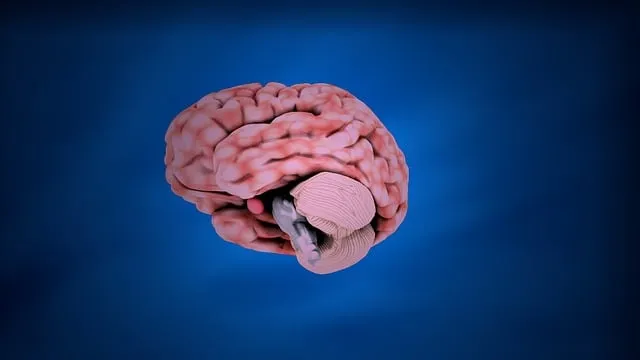The Lafayette Kaiser Permanente mental health center by owner employs a comprehensive risk assessment process to ensure patient safety and well-being, integrating it into evidence-based Anxiety Relief and Mental Wellness Coaching Programs. By addressing individual vulnerabilities and treatment risks, the center provides tailored support for self-harm, suicide ideation, and relapse prevention. Their holistic approach includes public awareness campaigns, conflict resolution training, and self-care promotion, aiming to reduce mental illness stigma and improve long-term patient outcomes. Through robust safety protocols, cultural sensitivity, continuous professional development, and social skills training, the center maintains a safe environment for both clients and practitioners.
In the sensitive realm of mental health care, risk assessment is a cornerstone of patient safety. This comprehensive guide explores essential practices for professionals, drawing insights from the pioneering approaches of the Lafayette Kaiser Permanente Mental Health Center—a leader in fostering resilient and secure environments. We delve into identifying risks, implementing robust safety protocols, and promoting continuous improvement through owner-driven initiatives. By adopting these strategies, mental health professionals can enhance patient outcomes and create nurturing, supportive spaces.
- Understanding Risk Assessment in Mental Health Care
- The Role of Lafayette Kaiser Permanente Mental Health Center
- Identifying Potential Risks and Hazards
- Implementing Effective Safety Protocols
- Continuous Improvement and Professional Development for Mental Health Professionals
Understanding Risk Assessment in Mental Health Care

Risk assessment is a critical component of mental health care, serving as a structured framework to identify and mitigate potential dangers within the therapeutic environment. At the Lafayette Kaiser Permanente mental health center by owner, this process involves a comprehensive evaluation of various factors that could impact patient safety and well-being. It encompasses not only identifying risks inherent in specific treatments or interventions but also understanding the unique vulnerabilities of each individual.
This proactive approach aims to foster an environment conducive to healing and growth. By assessing risks such as self-harm, suicide ideation, or relapse, mental health professionals can tailor their support strategies accordingly. Moreover, this process plays a pivotal role in Anxiety Relief programs development, ensuring that interventions are evidence-based and designed to address specific needs. Through continuous evaluation and adaptation, the center’s Mental Wellness Coaching Programs can evolve, contributing to Mental Illness Stigma Reduction Efforts and enhancing overall patient outcomes.
The Role of Lafayette Kaiser Permanente Mental Health Center

The Lafayette Kaiser Permanente Mental Health Center stands as a beacon of hope and healing in the community. As a leading healthcare provider, this center by owner prioritizes mental wellness through comprehensive services tailored to diverse needs. Here, individuals seeking support for conditions ranging from anxiety and depression to more severe disorders find specialized care.
Beyond direct patient care, Lafayette Kaiser Permanente Mental Health Center actively contributes to public awareness campaigns focused on destigmatizing mental health issues. They also foster development in conflict resolution techniques, empowering patients with tools for managing interpersonal challenges. Additionally, the center promotes self-care routine development for better mental health, encouraging proactive strategies for maintaining well-being.
Identifying Potential Risks and Hazards

At the Lafayette Kaiser Permanente mental health center by owner, identifying potential risks and hazards is a multifaceted endeavor. Professionals must be vigilant in recognizing environmental, interpersonal, and intrapersonal factors that could negatively impact their own emotional well-being promotion techniques. This includes navigating high-stress work environments, managing complex patient cases, and dealing with the emotional toll of crisis intervention guidance.
By understanding these risks, mental health professionals can implement effective strategies to mitigate potential hazards. For instance, adopting confidence-boosting practices and engaging in self-care routines can help maintain resilience. Additionally, seeking support from colleagues, supervisors, or professional networks provides a safety net, ensuring practitioners have access to crisis intervention resources when needed.
Implementing Effective Safety Protocols

Implementing effective safety protocols is a cornerstone for mental health professionals at Lafayette Kaiser Permanente mental health center by owner. This involves a multifaceted approach that starts with robust crisis intervention strategies and extends to fostering a culture of open communication. Mental wellness journaling exercises can serve as a valuable tool, enabling clients to track their thoughts, emotions, and progress, while also providing professionals with insights into potential risks or triggers.
Moreover, cultural sensitivity in mental healthcare practice is paramount. Professionals must be adept at tailoring their approach based on individual cultural backgrounds, ensuring that self-awareness exercises are inclusive and respectful. This not only enhances the therapeutic experience but also mitigates potential misunderstandings or miscommunications that could escalate into safety concerns. Such protocols ensure a safe and supportive environment for both clients and practitioners.
Continuous Improvement and Professional Development for Mental Health Professionals

At the Lafayette Kaiser Permanente mental health center by owner, continuous improvement is a cornerstone of professional development for mental health professionals. Regular training and education programs equip practitioners with the latest evidence-based practices, ensuring they remain at the forefront of their field. This commitment to excellence fosters an environment where professionals can enhance their clinical skills, refine their diagnostic abilities, and develop robust self-care practices – all essential aspects of managing risks in their practice.
Social skills training plays a pivotal role in this process. By honing interpersonal communication and empathy, mental health professionals can better connect with clients, build trust, and deliver more personalized care. Integrating Self-Care Practices into the professional development narrative is also vital. Mental health professionals must prioritize their own well-being to sustain their ability to support others effectively. This holistic approach to continuous improvement not only minimizes risks associated with burnout but also strengthens the overall quality of care provided at the Lafayette Kaiser Permanente mental health center by owner.
Mental health professionals play a crucial role in helping individuals navigate their psychological well-being. To ensure they can deliver safe, effective care, understanding and implementing robust risk assessment practices is essential. The Lafayette Kaiser Permanente Mental Health Center serves as a model for integrating comprehensive risk assessment strategies into clinical workflows, enhancing patient safety. By identifying potential risks and hazards, implementing strong safety protocols, and prioritizing continuous improvement through professional development, mental health professionals can create resilient environments that foster healing while mitigating potential dangers. Adopting these practices, inspired by the Lafayette Kaiser Permanente Mental Health Center by owner, is key to advancing mental health care.






